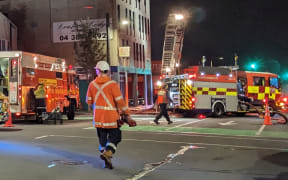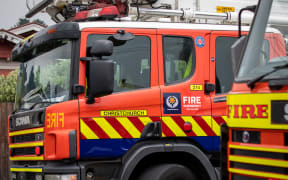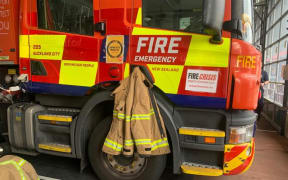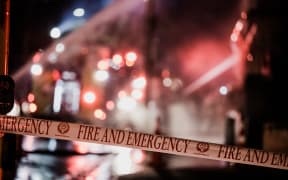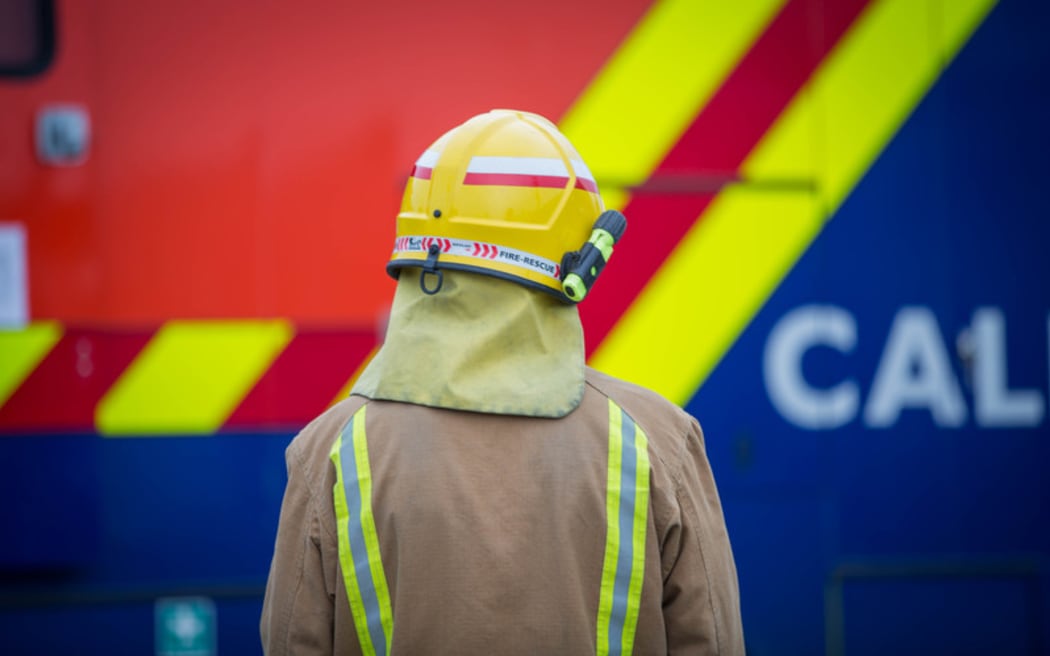
Fire and Emergency's expenses have been rocketing up - they are $200 million higher than in 2018.(file image) Photo: RNZ / Cole Eastham-Farrelly
Fire and Emergency is warning a rise in what people pay it through their insurance premiums will not be enough.
The levy on vehicle, house and other property insurance is set to rise by 12.8 percent in July - the first rise in seven years.
The insurance industry argues the levy is unfair, allowing the uninsured to free ride, and have lobbied to have it dropped but says there is no sign of that happening.
Fire and Emergency (FENZ) in its briefing to the incoming minister, or BIM, says even with the pending near-13 percent rise, the levy is only a stopgap.
"Levy funding will not cover the demand on the asset base in its current condition, and there is work underway to identify the financial shortfall," it said.
Its expenses have been rocketing up - they are $200 million higher than in 2018.
The briefing shows FENZ knows it faces a big hole, but not just how big it is.
"The identified shortfall to bring our assets to the required standard needs to be reassessed."
The BIM warned the minister of still further pressures ahead from having to respond to more climate change-induced weather emergencies.
A new form of levy, called the Part 3 levy, is due to kick in in 2026.
It is aimed at broadening the base of residential, commercial and vehicle policy holders who have to pay.
The minister must decide by the end of the year on the exact size and shape of this new levy, FENZ warned.
"Delaying these decisions would place pressure on the insurance industry to be ready in time ... and so avoid incurring penalties for incorrectly collecting the levy."
The insurance industry says it will comply, even though it opposes the levy in principle.
"If you want to address fairness, then you wouldn't ... enable people to free ride on FENZ because they simply don't bother to insure themselves," the Insurance Council's Tim Grafton said on Thursday.
But successive governments had resisted paying directly for FENZ, and there was no sign that would change, he said
"The chances of a change of tack are very low indeed unfortunately, but doing the right thing, that is what ought to happen."
Direct Crown funding of FENZ is just $10 million a year.
Proceeding with Part 3 would lock policy-holders into being tapped for increasingly unsustainable costs for emergency services for years to come, Grafton said.
FENZ's costs are forecast to rise to $760m in two years, $50m ahead of its revenues.
To break even on current revenues would require cutting almost 280 staff, including 141 firefighters and 136 backoffice staff, a FENZ document discussing levy options said last year.
Already, costs are rising faster than forecast, hitting $737m last year against a $713m forecast, partly as a result of a big pay deal with firefighters, whose ranks have been thinning out due to retirement and staff leaving, with the union arguing that low pay was undermining recruitment.
Firefighters have regularly told RNZ they do not see evidence of enough of this being invested on the front line, in the likes of new trucks or gas meters.
Some of the largest but ageing fire trucks have been breaking down regularly; one malfunctioning large ladder-truck in Wellington was out of action when the fatal Loafers Lodge fire broke out last May.
The BIM said that natural disasters and severe weather were forecast to have "the most significant growth in committed hours" in future, even as hours spent actual firefighting declined a little.
Demand was growing in the regions where FENZ had less resources to respond with, rather than in cities, and storms would likely intensify that trend, it said.
In 2020, FENZ estimated it would need $2.9 billion over 20 years, which posed a shortfall up against levy and other revenues of $900m - and this had only been growing since.
The agency had a lot of work to do "before we will be fully ready for a significant fiscal conversation with central government".

